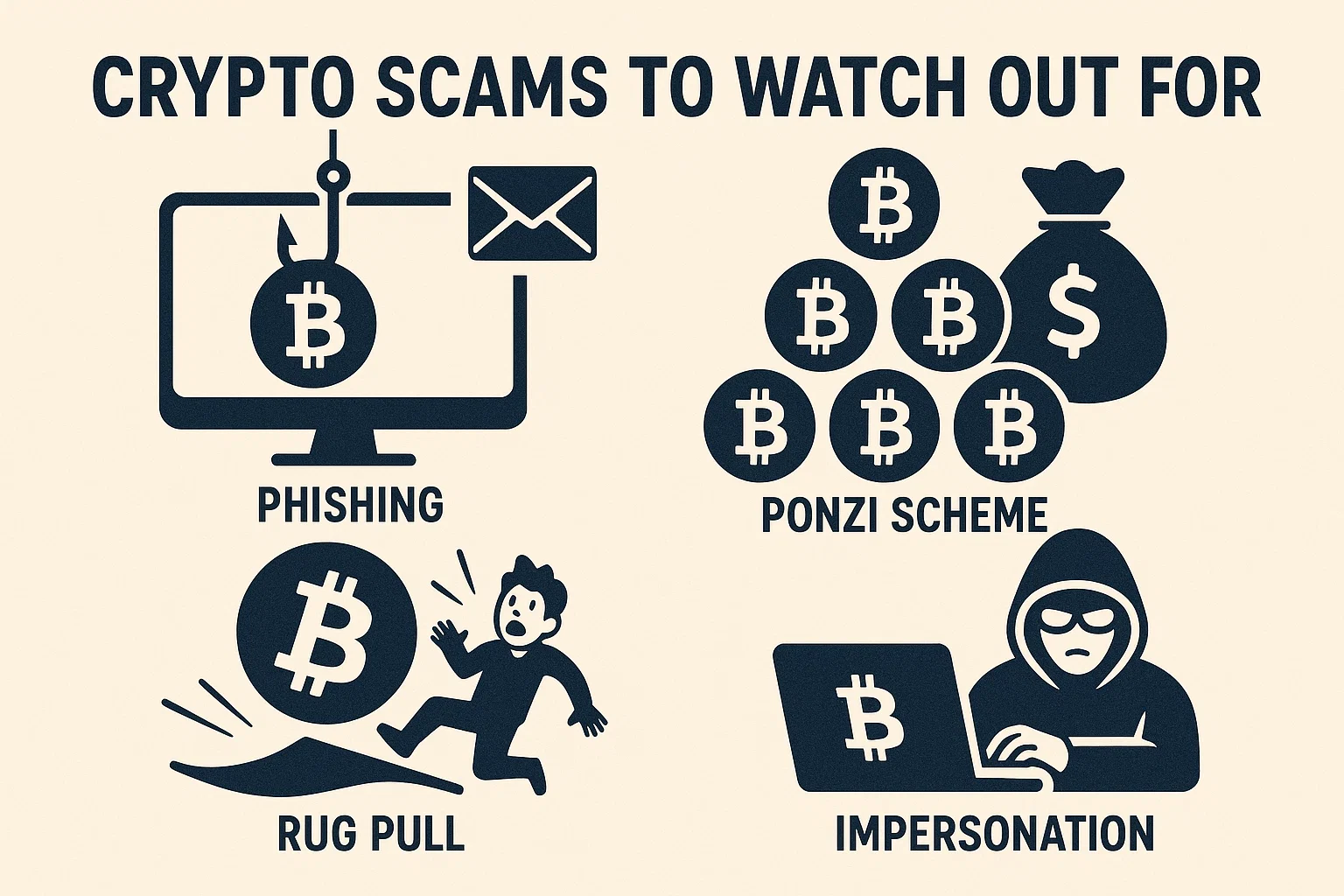Breaking News
Popular News




Enter your email address below and subscribe to our newsletter

As the crypto world grows, so do the scams. In 2025, investors face increasingly sophisticated crypto scams designed to steal funds, personal data, and reputation. This guide by bit2050.com lists the Top 10 crypto scams to watch out for, and how you can protect yourself.
Devs launch a token or DeFi project, pump liquidity, then pull all the funds and disappear.
Red flag: No clear team, no audit, too-good-to-be-true APYs.
Fake emails, social media DMs, or websites trick users into giving up seed phrases or wallet access.
Protect yourself: Always verify URLs. Use hardware wallets.
Promise high fixed returns using new investor funds—until it collapses.
Examples: BitConnect, GainBitcoin.
Avoid: Anyone promising “guaranteed” crypto returns.
Scammers ask users to connect wallets or pay “gas fees” to claim fake token drops.
Rule: Legit airdrops NEVER ask for upfront payments.
Coordinated Telegram or Discord groups that shill coins, then dump after users buy in.
Clue: Sudden pump with no real news.
Scammers mimic trusted influencers or support accounts on Twitter/X, Telegram, or Discord.
Tip: Check usernames, blue ticks, and follower counts.
On app stores or via links, scammers offer wallets that steal your funds upon transfer.
Use only: Verified apps like MetaMask, Trust Wallet, Ledger Live.
Hackers manipulate smart contracts in DEXs or DeFi protocols to drain liquidity.
Avoid: Protocols without audits, with unknown teams, or unaudited forks.
“Advisors” DM you offering to trade crypto on your behalf. They show fake screenshots of profits.
Truth: If they were that good, they wouldn’t be cold-DMing strangers.
“You won 5 ETH!”—you didn’t. They just want your private key or money.
Golden rule: Never send crypto to receive more crypto.
A: Rug pulls and phishing attacks remain the most reported scams across DeFi and Web3 platforms.
A: Check for team transparency, audits, smart contract reviews, and real community engagement. Be suspicious of guaranteed returns.
A: No. Only interact with known, verified airdrops. Scammers use fake drops to drain your wallet.
A: Stick to industry-recognized wallets like MetaMask, Trust Wallet, and Ledger. Avoid apps from unofficial sources.
A: Block and report. No legit platform or influencer will DM you to offer money or ask for your wallet key.
Crypto isn’t risky—scammers are. With proper awareness and vigilance, you can safely navigate DeFi, NFTs, and altcoin investments. Bookmark this list, stay alert, and follow trusted sources.
For more crypto safety tips and expert insights, visit bit2050.com — your guide to smarter crypto moves in 2025.